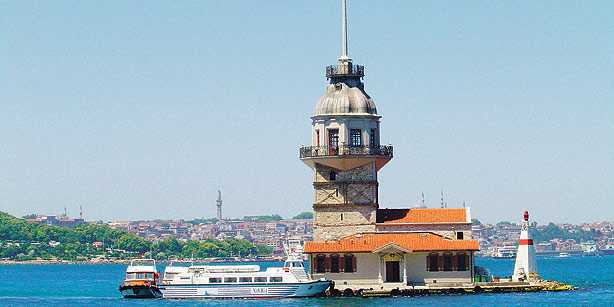By Alman Mir – Ismail
Friday, August 22, 2008
Partly because of the desire to refute these rumors and partly to achieve Turkey’s long-awaited goals in the Caucasus, Turkish Prime Minister Recep Tayyib Erdogan came up with the “Platform for security and cooperation in the South Caucasus” initiative. The initiative, which Erdogan plans to discuss with Russian Foreign Minister Sergey Lavrov, is intended to create a regional security framework. It intends to accomplish this by encouraging greater integration between Azerbaijan, Georgia, and Armenia and empowering Russia and Turkey to play the leads roles of regional security guarantors. Erdogan’s vision is to solve the frozen conflicts in the region on a sustainable and long-lasting basis and to satisfy the national interests of Russia, which regards the West’s influence in the region as a “zero-sum game.” Under this initiative, NATO would be limited to an outside role in providing security for the region — a clear effort to minimize Russian distrust and anger.
With this idea, Erdogan visited Baku on August 21 to talk with President of Azerbaijan Ilham Aliyev and unveil this plan. Azerbaijani public and politicians generally have greeted this proposal with a great degree of skepticism. Political analyst Rasim Musabeyov was quoted by ANS TV on August 21 saying, “Turkey wants to push Azerbaijan towards compromise and also make sure Armenia plays more pragmatic role. This is the vision behind the Caucasus Platform idea of Erdogan.”
Opposition newspaper Yeni Musavat believes that under the pretext of the Common Caucasus Platform, Erdogan wants to open borders with Armenia. Indeed, since its arrival in power in 2002, the AKP party has been favoring the idea of restoring economic and trade ties with Yerevan in order to improve the economic situation in Turkey’s Eastern regions, such as Kars and Erzurum, which suffer greatly from the closed borders with Armenia. Azerbaijani officials have protested against these ideas, saying that opening borders prior to Armenia’s liberation of the occupied Azerbaijani territories would not only damage Turkish-Azerbaijani solidarity and alliance in the region, but also symbolically forgive the ethnic cleansing by Armenia. Previous Turkish governments have preconditioned the opening of the borders with Armenia to the end of the Karabakh conflict. For Azerbaijan, closed borders between Turkey and Armenia are another tool of pressure on the officials in Yerevan.
Nevertheless, after the presidential elections in Armenia in early 2008, Turkish-Armenian relations seem to be entering a new stage. Newly elected President of Armenia Serj Sarkisian has invited his Turkish counterpart Abdulla Gul to Yerevan to watch a soccer game between the two countries. This sport event began a series of diplomatic events, culminating with the revelation by senior Turkish officials that high ranking diplomats of the two nations are engaged in negotiations in Geneva. And on August 22, Yeni Musavat even reported that Turkey opened flights into Armenia.
Officials in Baku seem less nervous this time about the possibility of the normalization of Turkish-Armenian relations than back in 2003-2004. It appears that even in the circles of the Azerbaijani political leadership, there is an understanding that the economic pressures on Armenia do not work and simply reinforce Armenian dependence on Russia. Perhaps the normalization of Turkish-Armenian relations will entice a breakthrough on the negotiation process in Nagorno-Karabakh conflict. More trust between these two nations might prompt Armenia to extend certain concessions, should Yerevan feel itself more secure.
However, some analysts believe that this Erdogan’s initiative is doomed to failure. Nationalism, realpolitik, and irrational behavior still dominate politics in the Caucasus, and it would be unrealistic to expect Armenia to be less nationalistic or Russia to behave more pragmatically. “If the West manages to push Russia out of Caucasus, then the idea of the common Caucasus home might be possible. If Russia stays in the region, then not,” says Ilgar Mammadov, political scientist (ANS TV, August 21). His colleague Zardusht Alizadeh echoes pessimism: “The initiative of Erdigan will be unsuccessful” (Day.az, August 20).
Similar proposals for the common Caucasus House, like the common EU, were made in the early 1990s but eventually failed due to a lack of desire from the competing powers both inside and outside of the region.






